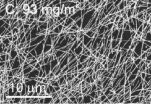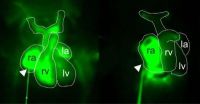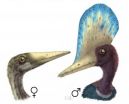(Press-News.org) Coral reefs build their structures by both producing and accumulating calcium carbonate, and this is essential for the maintenance and continued vertical growth capacity of reefs. An international research team has discovered that the amount of new carbonate being added by Caribbean coral reefs is now significantly below rates measured over recent geological timescales, and in some habitats is as much as 70% lower.
Coral reefs form some of the planet's most biologically diverse ecosystems, and provide valuable services to humans and wildlife. However, their ability to maintain their structures and continue to grow depends on the balance between the addition of new carbonate, which is mostly produced by corals themselves, set against the loss of carbonate through various erosional processes. Scientists have long known that reef ecosystems are in decline and that the amount of live coral on reefs is dwindling. But the paper, published on DATE TBC in Nature Communications, is the first evidence that these ecological changes are now also impacting on the growth potential of reefs themselves.
Professor Chris Perry of the University of Exeter, who led the research, said: "Our estimates of current rates of reef growth in the Caribbean are extremely alarming. Our study goes beyond only examining how much coral there is, to also look at the delicate balance of biological factors which determine whether coral reefs will continue to grow or will erode. Our findings clearly show that recent ecological declines are now suppressing the growth potential of reefs in the region, and that this will have major implications for their ability to respond positively to future sea level rises.
"It is most concerning that many coral reefs across the Caribbean have seemingly lost their capacity to produce enough carbonate to continue growing vertically, whilst others are already at a threshold where they may start to erode. At the moment there is limited evidence of large-scale erosion or loss of actual reef structure, but clearly if these trends continue, reef erosion looks far more likely. Urgent action to improve management of reef habitats and to limit global temperature increases is likely to be critical to reduce further deterioration of reef habitat."
The team was funded by the Leverhulme Trust (UK), through an International Network Grant. It included scientists from James Cook University and The University of Queensland in Australia, from The University of Auckland in New Zealand, Memorial University in Canada, and the University of Maine in the USA. They examined rates of carbonate production across 19 reefs in the four Caribbean countries of the Bahamas, Belize, Bonaire and Grand Cayman.
They discovered that declines in rates of carbonate production were especially evident in shallow water habitats, where many fast growing branching coral species have been lost. The study compared modern day rates with those measured in the region over approximately the last 7,000 years. In key habitats around the Caribbean, the findings suggested that in waters of around five metres in depth, reef growth rates are now reduced by 60-70% compared to the regional averages taken from historical records. In waters of around 10 metres in depth, the rates are reduced by 25%.
The study also suggests that these key habitats must have a minimum of around 10% living coral cover to maintain their current structures. The amount of cover varies between sites, but some are already below this threshold and are therefore at risk of starting to erode. Given that previous studies have shown that coral cover on reefs in the Caribbean has declined by an average of 80 per cent since the 1970s, this raises alarm bells for the future state of reefs in the region. These changes have been driven by human disturbance, disease and rising sea temperatures, and are only expected to intensify as a result of future climate change.
### END
New evidence highlights threat to Caribbean coral reef growth
Many Caribbean coral reefs have either stopped growing or are on the threshold of starting to erode, new evidence has revealed
2013-01-29
ELSE PRESS RELEASES FROM THIS DATE:
Could the timing of when you eat, be just as important as what you eat?
2013-01-29
Boston, MA—Most weight-loss plans center around a balance between caloric intake and energy expenditure. However, new research has shed light on a new factor that is necessary to shed pounds: timing. Researchers from Brigham and Women's Hospital (BWH), in collaboration with the University of Murcia and Tufts University, have found that it's not simply what you eat, but also when you eat, that may help with weight-loss regulation.
The study will be published on January 29, 2013 in the International Journal of Obesity.
"This is the first large-scale prospective study ...
Debunking the 'July effect': Surgery date has little impact on outcome, Mayo Clinic finds
2013-01-29
ROCHESTER, Minn. -- The "July Effect" -- the notion that the influx of new residents and fellows at teaching hospitals each July makes that the worse time of year to be a patient -- seems to be a myth, according to new Mayo Clinic research that examined nearly 1 million hospitalizations for patients undergoing spine surgery from 2001 to 2008. Among those going under the knife, researchers discovered that the month surgery occurred had an insignificant impact on patient outcomes.
In addition, no substantial "July Effect" was observed in higher-risk patients, those admitted ...
Physicians' brain scans indicate doctors can feel their patients' pain -- and their relief
2013-01-29
BOSTON – A patient's relationship with his or her doctor has long been considered an important component of healing. Now, in a novel investigation in which physicians underwent brain scans while they believed they were actually treating patients, researchers have provided the first scientific evidence indicating that doctors truly can feel their patients' pain – and can also experience their relief following treatment.
Led by researchers at Massachusetts General Hospital (MGH) and the Program in Placebo Studies and Therapeutic Encounter (PiPS) at Beth Israel Deaconess ...
Preclinical study identifies 'master' proto-oncogene that regulates ovarian cancer metastasis
2013-01-29
Scientists at The University of Texas MD Anderson Cancer Center have discovered the signaling pathway whereby a master regulator of cancer cell proteins – known as Src – leads to ovarian cancer progression when exposed to stress hormones. The researchers report in the current issue of Nature Communications that beta blocker drugs mitigate this effect and reduce cancer deaths by an average of 17 percent.
Src (pronounced "sarc," short for sarcoma) is a proto-oncogene – a normal gene that can become an oncogene due to increased expression – involved in the regulation of ...
Medical societies unite on patient-centered measures for nonsurgical stroke interventions
2013-01-29
FAIRFAX, Va.—The first outcome-based guidelines for interventional treatment of acute ischemic stroke—providing recommendations for rapid treatment—will benefit individuals suffering from brain attacks, often caused by artery-blocking blood clots. Representatives from the Society of Interventional Radiology and seven other medical societies created a multispecialty and international consensus on the metrics and benchmarks for processes of care and technical and clinical outcomes for stroke patients.
In February, the guidelines will be published first in SIR's Journal ...
New options for transparent contact electrodes
2013-01-29
This press release is available in German.
Found in flat screens, solar modules, or in new organic light-emitting diode (LED) displays, transparent electrodes have become ubiquitous. Typically, they consist of metal oxides like In2O3, SnO2, ZnO and TiO2.
But since raw materials like indium are becoming more and more costly, researchers have begun to look elsewhere for alternatives. A new review article by HZB scientist Dr. Klaus Ellmer, published in the renowned scientific journal Nature Photonics, is hoping to shed light on the different advantages and disadvantages ...
Epigenetic control of cardiogenesis
2013-01-29
This press release is available in German.
Many different tissues and organs form from pluripotent stem cells during embryonic development. To date it had been known that these processes are controlled by transcription factors for specific tissues. Scientists from the Max Planck Institute for Molecular Genetics in Berlin, in collaboration with colleagues at MIT and the Broad Institute in Boston, have now been able to demonstrate that RNA molecules, which do not act as templates for protein synthesis, participate in these processes as well. The scientists knocked down ...
New insights into conquering influenza
2013-01-29
As influenza spreads through the northern hemisphere winter, Dr Linda Wakim and her colleagues in the Laboratory of Professor Jose Villadangos from the Department of Biochemistry and Molecular Biology, and the Department of Microbiology and Immunology, believe they have a new clue to why some people fight infections better than others.
The lab has been investigating the 'defensive devices' contained within the T- cells that are located on exposed body surfaces such as skin and mucosal surfaces to ward off infection. T-cells detect cells infected with viruses and kill ...
Survival of the prettiest: Sexual selection can be inferred from the fossil record
2013-01-29
Detecting sexual selection in the fossil record is not impossible, according to scientists writing in Trends in Ecology and Evolution this month, co-authored by Dr Darren Naish of the University of Southampton.
The term "sexual selection" refers to the evolutionary pressures that relate to a species' ability to repel rivals, meet mates and pass on genes. We can observe these processes happening in living animals but how do palaeontologists know that sexual selection operated in fossil ones?
Historically, palaeontologists have thought it challenging, even impossible, ...
New insights into managing our water resources
2013-01-29
Dr Tim Peterson, from the School of Engineering at the University of Melbourne has offered new theories that will lead to a deeper knowledge of how water catchments behave during wet and dry years. His research was published recently in the leading international hydrology journal "Water Resources Research" and was selected by the American Geophysical Union as a highlight of the society's 13 international journals.
Dr Peterson's work shows that some catchments have a finite resilience to wet and dry years because they have two steady states. The traditionally held view ...
LAST 30 PRESS RELEASES:
University of Oklahoma researchers develop durable hybrid materials for faster radiation detection
Medicaid disenrollment spikes at age 19, study finds
Turning agricultural waste into advanced materials: Review highlights how torrefaction could power a sustainable carbon future
New study warns emerging pollutants in livestock and aquaculture waste may threaten ecosystems and public health
Integrated rice–aquatic farming systems may hold the key to smarter nitrogen use and lower agricultural emissions
Hope for global banana farming in genetic discovery
Mirror image pheromones help beetles swipe right
Prenatal lead exposure related to worse cognitive function in adults
Research alert: Understanding substance use across the full spectrum of sexual identity
Pekingese, Shih Tzu and Staffordshire Bull Terrier among twelve dog breeds at risk of serious breathing condition
Selected dog breeds with most breathing trouble identified in new study
Interplay of class and gender may influence social judgments differently between cultures
Pollen counts can be predicted by machine learning models using meteorological data with more than 80% accuracy even a week ahead, for both grass and birch tree pollen, which could be key in effective
Rewriting our understanding of early hominin dispersal to Eurasia
Rising simultaneous wildfire risk compromises international firefighting efforts
Honey bee "dance floors" can be accurately located with a new method, mapping where in the hive forager bees perform waggle dances to signal the location of pollen and nectar for their nestmates
Exercise and nutritional drinks can reduce the need for care in dementia
Michelson Medical Research Foundation awards $750,000 to rising immunology leaders
SfN announces Early Career Policy Ambassadors Class of 2026
Spiritual practices strongly associated with reduced risk for hazardous alcohol and drug use
Novel vaccine protects against C. diff disease and recurrence
An “electrical” circadian clock balances growth between shoots and roots
Largest study of rare skin cancer in Mexican patients shows its more complex than previously thought
Colonists dredged away Sydney’s natural oyster reefs. Now science knows how best to restore them.
Joint and independent associations of gestational diabetes and depression with childhood obesity
Spirituality and harmful or hazardous alcohol and other drug use
New plastic material could solve energy storage challenge, researchers report
Mapping protein production in brain cells yields new insights for brain disease
Exposing a hidden anchor for HIV replication
Can Europe be climate-neutral by 2050? New monitor tracks the pace of the energy transition
[Press-News.org] New evidence highlights threat to Caribbean coral reef growthMany Caribbean coral reefs have either stopped growing or are on the threshold of starting to erode, new evidence has revealed


